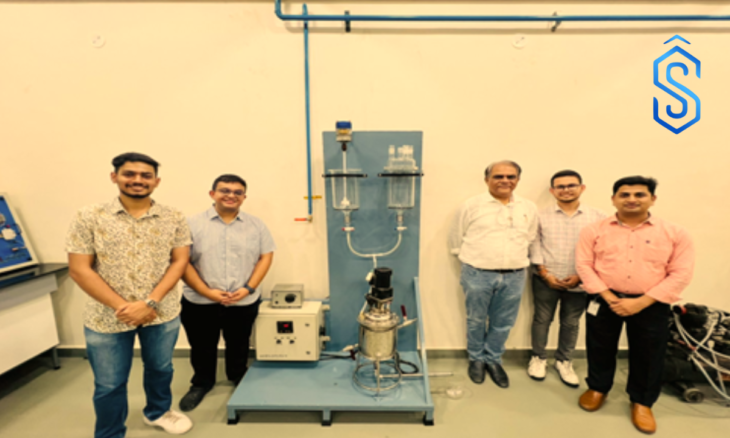Pune: MIT World Peace University (MITWPU) has announced two groundbreaking developments on the eve of World Earth Day. The university has introduced a novel bio-process for producing green hydrogen from sugarcane juice and unveiled an efficient biodiesel production system using agro-waste-derived catalysts.
The hydrogen production process, developed by researchers at MITWPU, utilizes microorganisms to convert sugarcane juice into hydrogen, while simultaneously transforming carbon dioxide into acetic acid.
This dual-benefit system not only lowers hydrogen production costs but also supports zero-discharge operations—making it a viable and sustainable solution for India’s energy transition. The process uses common resources like sugarcane juice, sea water, and wastewater, operating at room temperature.
Dr. Bharat Kale, Emeritus Professor and Director of the Centre of Excellence for Material Sciences at MITWPU, emphasized the potential of this innovation: “Our aim is to reduce hydrogen production costs to as low as $1 per kg. The process is environmentally sound, generates useful byproducts, and does not rely on traditional water-splitting methods. We are actively seeking industry collaborations for lab-scale development and eventual technology transfer.”
A patent for this green hydrogen production technology has been filed, and the proposal has been submitted to the Ministry of New and Renewable Energy (MNRE), including plans for establishing a Centre of Excellence on Green Hydrogen.
MITWPU Research in Hydrogen Storage
The university is also progressing with advanced research in hydrogen storage using Metallo-organic Frameworks (MOFs), with a strong focus on CO₂ capture technologies.
In another key development, MITWPU has introduced a highly efficient batch reactor system for producing biodiesel. The system employs a patented agro-waste-based heterogeneous catalyst that enhances performance through a porous structure, increasing surface area and ensuring thermal stability during the production process.
Dr. Kale noted: “This biodiesel technology offers an eco-friendly and economical alternative to fossil fuels. The process eliminates waste generation while converting agricultural residues into affordable and efficient catalysts. We expect the technology to be commercialized within six months, with industry participation and policy support playing crucial roles.”
The biodiesel initiative is particularly relevant for agricultural regions like Punjab and Haryana, where biomass burning remains an environmental concern. MITWPU’s innovation provides a scalable, renewable solution aligned with India’s broader climate goals.
Both projects are led by a research team comprising Dr. Sagar Kanekar, Dr. Anand Kulkarni, Prof. Niraj Topare, Dr. Santosh Patil, Dr. Dev Thapa, Dr. Biswas, Dr. Ratnadip Joshi, and Dr. Bharat Kale.











[…] (ICTDD) — a new, high-impact industry showcase that will take place on May 17 at Sofitel BKC, Mumbai.Montra Electric and Magenta Mobility Partner to Deploy 100 Eviator EVs for Green […]
[…] Dr. Milind Pande, Pro-Vice Chancellor of MIT World Peace University (MITWPU), Pune, has co-edited a new scholarly book titled “Innovations and Dynamics in Photonics and […]
[…] This cutting-edge initiative aims to accelerate decarbonization in energy-intensive industries, particularly semiconductor manufacturing.MITWPU Develops Green Hydrogen from Sugarcane Juice […]
[…] The MIT WPU Battery Research Center is a fully integrated setup with end-to-end capabilities – ranging from active material synthesis and coin cell fabrication to advanced electrochemical performance evaluation.MITWPU Develops Green Hydrogen from Sugarcane Juice […]
[…] global peacebuilding efforts, Dr Rahul Karad, Executive President of MIT World Peace University (MIT-WPU), was honoured with the 2025 Global Business and Interfaith Peace Award at the inaugural IRF […]
[…] with a globally renowned International Clean-Tech Partner to accelerate the deployment of green hydrogen solutions in India and […]
[…] Also Read: MITWPU Develops Green Hydrogen from Sugarcane Juice […]
[…] Also Read: MITWPU Develops Green Hydrogen from Sugarcane Juice […]
[…] Also Read: MITWPU Develops Green Hydrogen from Sugarcane Juice […]